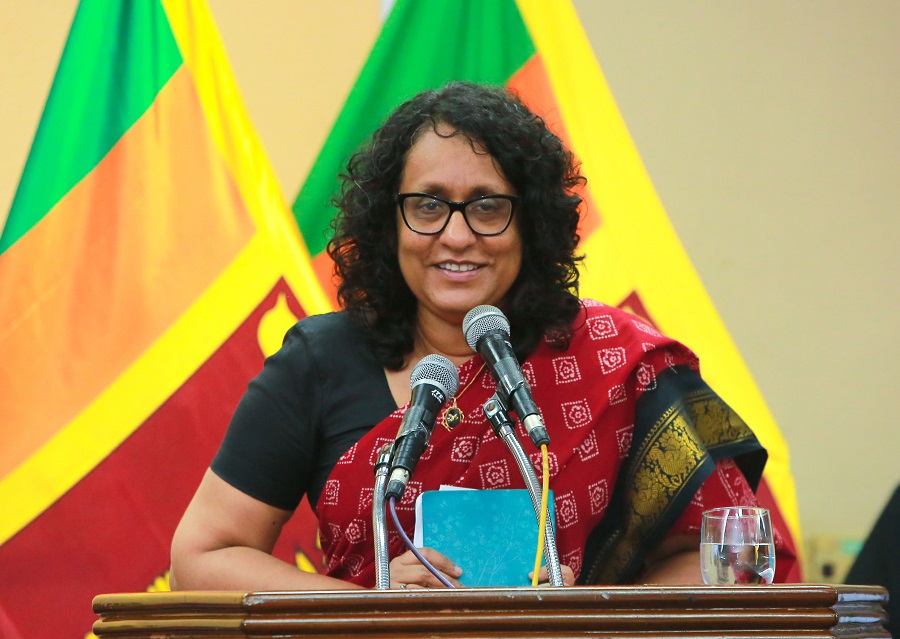-By A Staff Writer

(Lanka-e-News - 29.Sep.2025, 11.00 PM) The Sri Lankan government’s recent amendment to laws governing the punishment of children has sparked a wider social debate, with Prime Minister Harini Amarasuriya insisting that discipline can and must be enforced without humiliation or violence, while the Director-General of the Commission to Investigate Allegations of Bribery or Corruption (CIABOC), Ranga Dissanayake, cautioned against leaving school principals “to fall into difficulty like the tragic figure in Guru Geethaya”.
The remarks were made at an Education Ministry workshop held yesterday (27) to brief national school principals on the legal reforms aimed at protecting children from corporal and psychological punishmentෙ
“This is not about schools alone, nor is it a law aimed at teachers,” Amarasuriya said. “It is a law for the protection of all children—whether in schools, in police custody, in residential care, or those simply abandoned. The issue is not confined to classrooms but affects children across our society. The abuse is both physical and psychological, often at the hands of adults who are meant to protect them.”
Rejecting claims that the new law makes it impossible to discipline children, she stressed:
“We have not banned discipline. We have not outlawed maintaining order. What we are saying is that there are countless ways to correct a child without violence, without humiliation, without psychological abuse. If we as a society believe punishment only means beating or shaming, then we have a deeper conversation to have.”
Amarasuriya linked the reform to a broader culture of violence in Sri Lanka:
“Our society has come to accept violence as the primary method of resolving conflict—whether in homes, in institutions, or even among the clergy. Domestic violence has escalated, and new forms of ragging in universities are often unbearable for students. If we accept violence as a legitimate means of problem-solving, we are building an uncivilised society. That is the deeper danger.”
She called for workshops to explore constructive methods of discipline: “There are many positive ways. Let us discuss them as a society rather than defaulting to violence.”
Taking the floor at the same event, CIABOC chief Ranga Dissanayake shifted the focus to corruption and the burdens facing principals.
“Running a school is no easy task,” he said. “Many principals are accused of corruption for taking money during student admissions. Yes, there are reports of such practices, and yes, circulars have been issued banning them. But the reality is more complex.”
He noted that School Development Societies raise funds for infrastructure, while parents frequently make contributions for improvements. “At times, these are branded as bribes. But if we don’t regularise this process, well-meaning principals who simply want to improve their schools will end up vilified—like the noble but tragic headmaster in Guru Geethaya,” he warned.
Dissanayake acknowledged contradictions: “Parents who willingly pay to secure admission never come forward to complain. Yet they are the first to say the system is corrupt. This is a human dilemma, and it requires a proper system—not scapegoating.”
The new legal amendment has reignited public arguments over the role of punishment in maintaining discipline, but the government insists the reform is about protecting children, not paralysing schools.
For Amarasuriya, the issue reaches far beyond classrooms: “We must decide whether we are a society that educates children through violence or one that teaches discipline through respect.”
For Dissanayake, the challenge lies in ensuring that reforms do not turn principled educators into convenient culprits.
Between them lies the central question for Sri Lanka: how to discipline, protect, and educate its children—without repeating cycles of abuse and corruption.
-By A Staff Writer
---------------------------
by (2025-09-29 22:11:12)
Leave a Reply